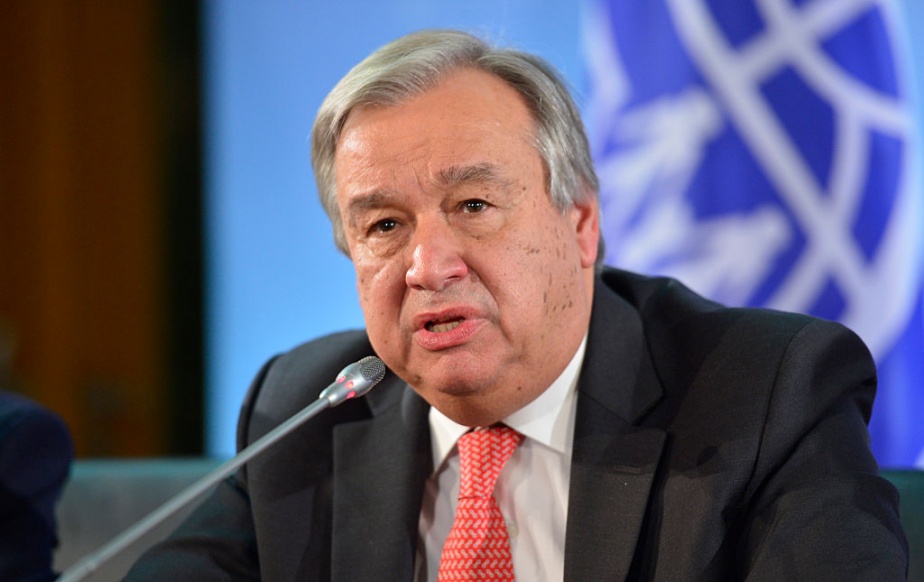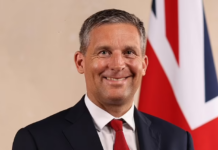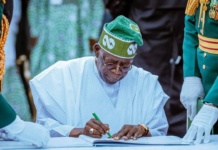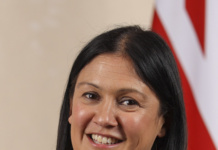Global body in charge of security, United Nations Security Council, says it is worried over what it described as continued tensions linked to disputed electoral processes, social and economic difficulties, and conflicts between farmers and herders in the Lake Chad Basin.

Nigeria, Cameroon and Chad are members of the Lake Chad Basin on which the UN body also said it remained concerned at their security and humanitarian situation caused by Boko Haram and other armed groups.
The body spoke in a Presidential Statement released, yesterday, on the heels of last Tuesday’s siege on the National Assembly by Nigeria’s secret police, the Department of State Service (DSS).
Acting President Yemi Osinbajo had fired the DSS Director General, Mr Lawal Daura, following the siege which attracted condemnation from across Nigeria.
Some international bodies, including the European Union, EU, also condemned the National Assembly invasion.
The siege had been interpreted in some quarters as part of the moves by the ruling All Progressives Congress (APC) to remove Senate President Bukola Saraki, who had defected to the Peoples Democratic Party (PDP), through the backdoor.
Another school of thought said the siege was staged by the Senate President, in conjunction with the DSS, to attract sympathy to his person and make the administration of President Muhammadu Buhari look bad in the eyes of the democratic world.
Meanwhile, the cat and mouse game between the leadership of the National Assembly and the Presidency to get the federal lawmakers to reconvene and approve the supplementary budget of the Independent National Electoral Commission (INEC) for the 2019 general elections continued, yesterday, as indications emerged that the lawmakers may not meet this week.
The lawmakers had gone on recess late last month and are not due to return to parliament until late September.
In a Presidential Statement, the 15-member UN Security Council regretted that Central African countries were beset by on-going terrorist activity, instability and the effects of climate change, and asked Secretary-General Antonio Guterres to review the work of the UN Regional Office for Central Africa (UNOCA), and recommend areas for improvement.
The presidential statement read: “The Security Council strongly condemns all terrorist attacks carried out in the region, including those perpetrated by Boko Haram and the Islamic State in Iraq and the Levant (ISIL, also known as Daesh).
“These attacks have caused large-scale and devastating losses, have had a devastating humanitarian impact including through the displacement of a large number of civilians in Nigeria, Cameroon and Chad, and represent a threat to the stability and peace of West and Central Africa.
“The Council notes with particular concern the continuing use by Boko Haram of women and girls as suicide bombers, which has created an atmosphere of suspicion towards them and made them targets of harassment and stigmatisation in affected communities, and of arbitrary arrests by security forces.
“The Council emphasises the need for affected States to counter-terrorism in all its forms and manifestations, including by addressing the conditions conducive to the spread of terrorism, in accordance with obligations under international law, in particular international human rights law, international refugee law and international humanitarian law”.
The Security Council welcomed the support provided by UNOCA and the UN Office for West Africa and Sahel (UNOWAS) for the development of a joint regional strategy to address the root causes of the Lake Chad Basin crisis through regular contact with regional leaders.
The Council encouraged partners to increase security assistance to Lake Chad Basin Commission countries, and humanitarian and development support across the region for those affected by Boko Haram activities.
“The Security Council remains deeply concerned at the grave security situation and related violations and abuses of human rights in parts of Central Africa, in particular the continuing terrorist activities of Boko Haram and other terrorist groups in the Lake Chad Basin,” it said.
“The Security Council expresses its ongoing concern at continued tensions linked to disputed electoral processes, social and economic difficulties, and conflicts between farmers and herders,” the statement added.
The 15-member Council noted that UNOCA’s priorities would include to work closely with UNOWAS to address transregional issues such as maritime security in the Gulf of Guinea, conflict between farmers and herders, and combatting Boko Haram.
The UN Security Council committee on al Qaeda sanctions blacklisted and imposed sanctions on the Islamist militant group Boko Haram in 2014 after the insurgents kidnapped more than 200 Chibok schoolgirls.
The designation, which came into effect after no objections were raised by the Security Council’s 15 members, subjected Boko Haram to UN sanctions, including an arms embargo, asset freeze and travel ban.
The National Assembly was under pressure, last week, to reconvene to consider the budget to enable INEC prepare for the forthcoming polls.
The leadership was scheduled to meet INEC National Chairman, Prof. Mahood Yakubu, ahead of the reconvening, last Tuesday, but the DSS siege aborted the meeting.
The meeting, nonetheless, held on Wednesday.
Kindly follow us on twitter:@AfricanVoice2









